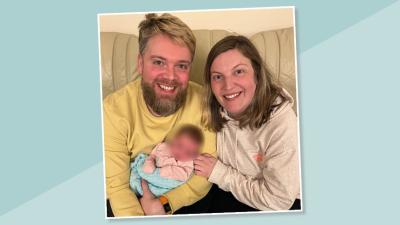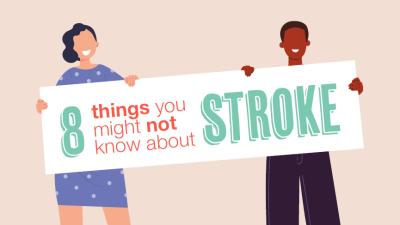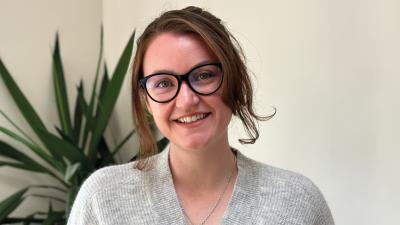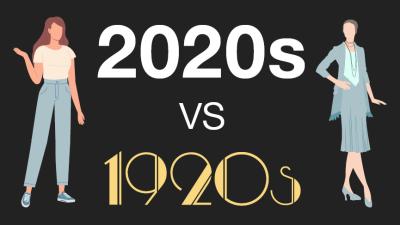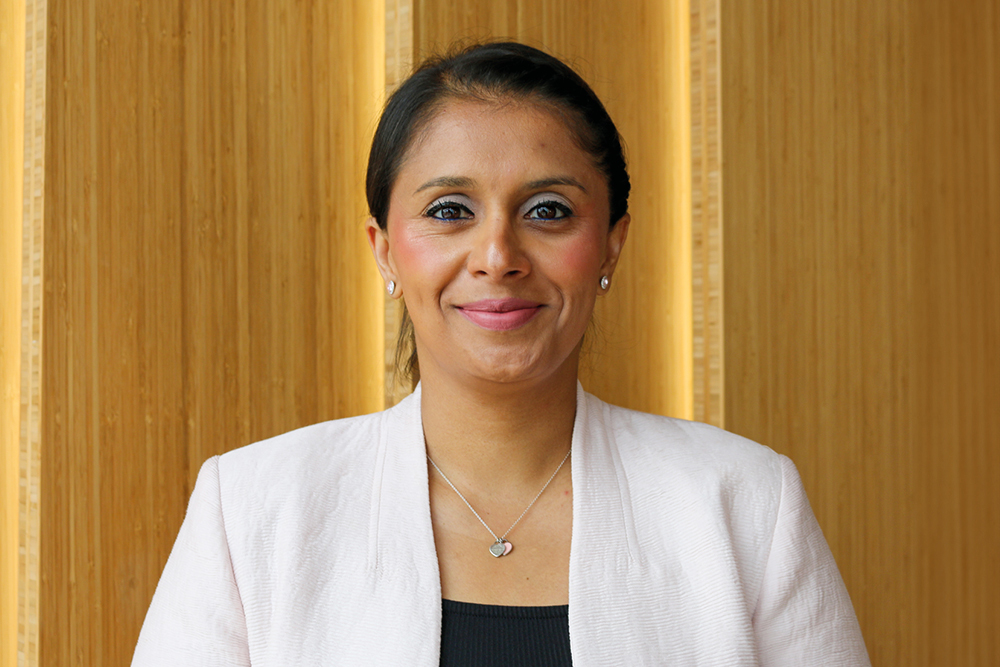
“It’s a huge role, a really exciting role to be a Head of Equality, Diversity and Inclusion and I look at the people perspective in terms of how we are looking after and supporting our colleagues, our communities and our customers. Diversity brings value and innovation to our business.”
What gives people working in EDI (Equality, Diversity and Inclusion) job satisfaction? In this blog I find out and explore what makes this a pivotal role in today’s workplace. You’ll hear from two professionals working in this new and growing EDI field: Elizabeth Cameron, Strategic Lead for Equality, Diversity and Inclusion at One Manchester and Sim Sian, Head of Equality, Diversity and Inclusion at Mitie (quoted and pictured above). Their experiences are inspiring and their influence significant.
It’s of course the law to comply with the 2010 Equality Act and enable people to thrive at work but businesses now know that it makes good business sense too.
What job opportunities are there in Equality, Diversity and Inclusion?
As I write, there are thousands of job vacancies in EDI all over the UK in many different sectors. On Indeed.com right now for example, organisations are recruiting for the following EDI roles:
- Equality, Diversity and Inclusion Project Officer at Manchester Metropolitan University: £25,285 - £28,131 salary
- Equality, Diversity & Inclusion Officer at TC Facilities Management: £45,000 - £50,000 salary
- Head of Equality, Diversity & Inclusion at the University of Portsmouth: £64,946 - £76,462 salary
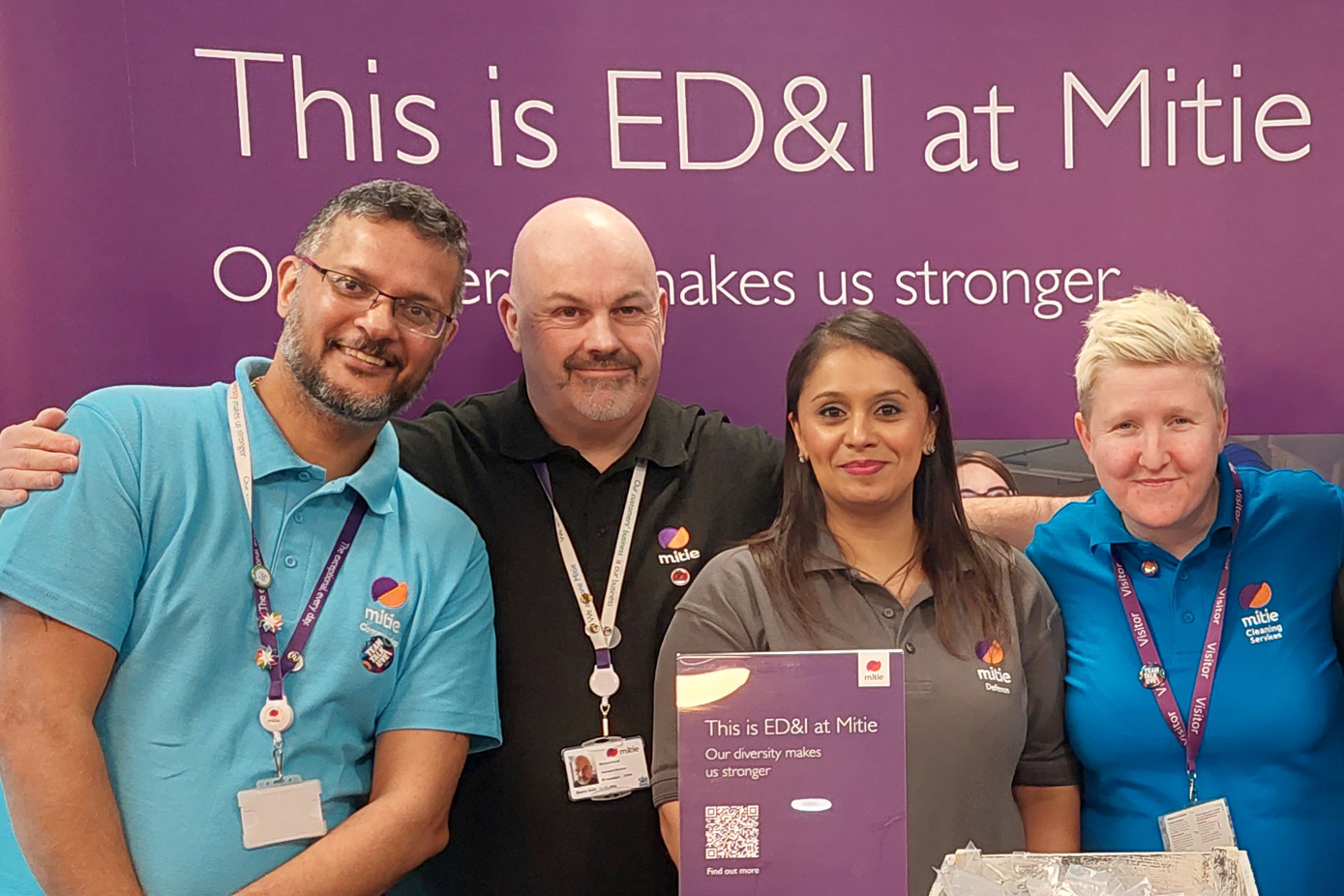
You’ll be working with your organisation’s key stakeholders to create a culture of inclusivity. You’ll likely develop, implement, and monitor your company's diversity and inclusion strategy, policies and procedures (or write them – at a senior level) and you’ll be collecting data and managing the patterns of change throughout your organisation. You’ll help set those all-important objectives around diversity and inclusion and help drive these areas forward across your organisation.
And ‘drive’ is what you’ll need. “I think it helps to be bold!” says Elizabeth Cameron (pictured in the foreground below). “It’s sometimes a challenging job to be an EDI Lead. I’m almost ‘fighting my corner’ and I need to convince others of the essential nature of what people need. I feel I need to stick my neck out to make change.”
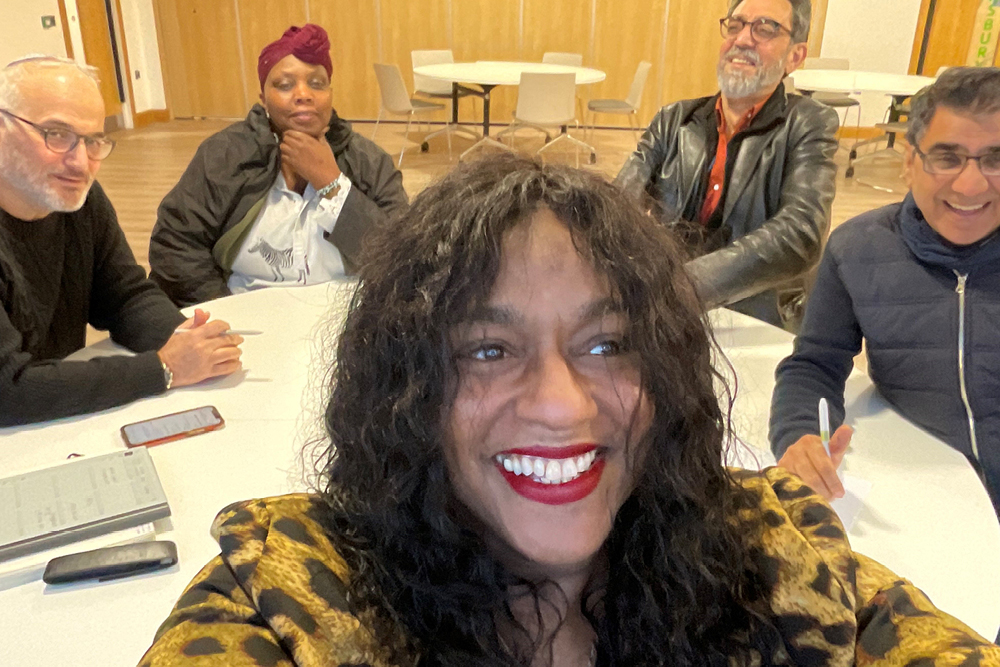
“The job satisfaction is why we do what we do” continues Elizabeth. “When I help create the systems which change policies, it’s genuinely life-changing for people. I’ve seen it when I’ve helped a colleague who was really struggling at work – we made a change, we provided reasonable adjustments and now they’re bouncing in in the morning!
The results I can achieve are my motivation. It’s a positive thing to do. I like to find out what life is like for people. I like sitting with people to learn to understand them. The most marginalised people in our society are having a tough time of it.”
The CIPD (Chartered Institute of Personnel and Development) summarise this job as ‘creating an environment where difference is embraced and individuals flourish’. Sim Sian from Mitie agrees and adds that it’s about more than this for her and for her business; “It’s also about growth, development, and intersection. I kind of get involved in everything! Diversity brings innovation, creativity, and the avoidance of ‘groupthink’. Diversity makes us stronger.”
Being a ‘people person’ as an EDI Manager
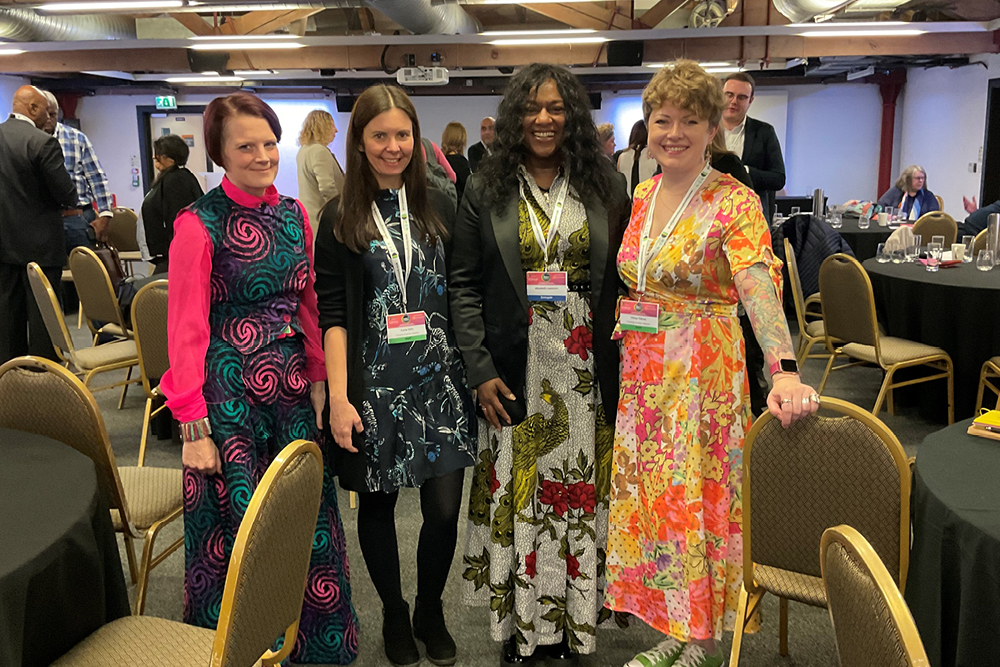
It’s obvious that being a ‘people person’ and having that strong interest in people’s welfare is an important quality of a good EDI Manager. Elizabeth Cameron (second from right, above) is a qualified counsellor and this gives her great empathy. It means that she is there to share people’s pain but also to share their joy.
“There’s a lot of respect that needs to go into having a job like this” says Sim Sian. “Good understanding; emotional awareness; cultural competence. You’ve got to be a people's person, but you’ve also got to be assertive and be able to have those challenging conversations as well. What's really lovely is that our colleagues know I’m here, so people aren’t afraid to ask for help or support. I want to amplify the voice of our colleagues. We need to do everything that we can to make people feel like they can belong.”
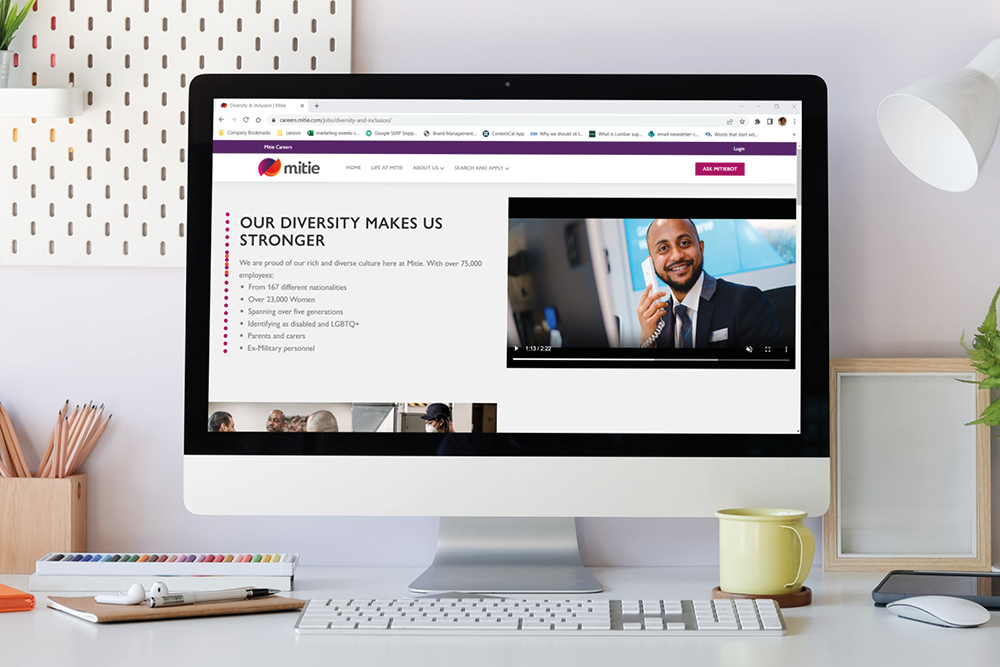
Bringing your life experience to the EDI role
In Elizabeth’s busy community work (including being Chair of the Greater Manchester Combined Authority Race Equality Panel) and through her professional roles, she has touched every form of protected group and so has learned from and created empathy with a diverse range of people. She has a physical disability herself and feels passionately about people deserving to have the same level of opportunity.
“The things that you see and you hear in your life help shape how you see the world” Sim Sian tells me. She worked in policing for 12 years dealing with crime and then moved to a role in ED&I where she also supported the Hate Crime portfolio and had needed to start building a resilience to get through the job. “I was actually in a near-fatal car accident in 2010, so my experience of losing mobility is significant - I wasn’t able to walk for 10 months and that really does help shape you and encourage you to appreciate the daily actions that we take for granted. I think my personal life experiences of coming from an Indian background and growing up in a very white-dominated environment are part of who I am too.
However I never make equality, diversity and inclusion about me, that’s the last thing I want to do. I've only done a good job when others are doing the talking about diversity and taking action. We need to bring others along that journey with us. In the awareness raising work we do at Mitie, it’s an opportunity for colleagues to come together and build a network but also to learn and ask questions in a safe place.”
Getting the ‘buy-in’ from senior leaders for EDI
“Hand on heart” says Sim Sian, “I’ve not had to come to Mitie and convince one person that ED&I is the right thing to do. That’s unusual! Some organisations will say they want to transform equality, but won’t give you that platform and won't give you that support.
But at Mitie I think we have the buy-in from our people at every level. So I think what we’ve done is really mainstream ED&I and got people thinking about it as part of their day job as opposed to it being more of a bolt-on. My colleagues recognise that it's the right thing to do for our people, customers and communities. And it’s the law!”
Note that it’s illegal for employers to discriminate on the grounds of age, disability, gender reassignment, marriage and civil partnership, pregnancy and maternity, race, religion or belief, sex or sexual orientation.
Sim continues: “It’s important to remember that you're often not just one protected characteristic; you can be intersectional and we’ve changed our approach so that each Diversity network has a ‘tier one’ event. So right now we’re in the Pride month and our Proud To Be network will have the forefront this month when it comes to communications. So they’ll do a big tier one event where we see Board and Exec attendance in addition to an average of about 500 people across the organisation attending either virtually or in person and we hear stories from our colleagues. It’s a real hearts and minds piece.”

This mindset would not have been the case in most organisations even five years ago. Elizabeth pointed out to me that it’s only in the last 3-4 years that there have been significant budgets to make good progress: “The fight for equality is an ongoing one.” Elizabeth is proud of what her organisation One Manchester is achieving – such as 56% of their leadership positions now being held by women.
What should you study to get into a career in EDI and what career paths could you take?
There is not one field of study which sets you up perfectly for a career in equality, diversity and inclusion, but instead you can bring skills from any discipline. You can bring your life experience too, as we discussed earlier in this article, and proof of cross-cultural understanding.
Elizabeth has a degree in International Labour and Trade Union studies as well as a Chartered Management Institute Level 7 qualification in Strategic Approaches to Equality, Diversity and Inclusion from In Professional Development. She has worked with The Prince’s Trust, The Church of England, Rape Crisis centres, Options Employment (Breakthrough UK) and Salford City Council in both adults and children’s social services before starting at One Manchester, the provider of housing and community services.
Sim has a degree in Criminology and she first of all spent 12 years in Surrey Police, initially as a Customer Service Specialist and working up to become a Diversity Manager. During this time she gained a CIPD level 7 qualification in HR and says this was brilliant in giving her the business context of EDI. Before her role at Mitie, the facilities management and professional services company with 68,000 employees, Sim was the Talent and Diversity Manager at Heathrow Airport.
Charlie Leavy, Equality, Diversity and Inclusion Coordinator at the University of the West of Scotland, tells me regarding fields of study before EDI jobs: “I’m not sure it matters! I studied History with Contemporary Chinese Studies at university, and my counterpart colleague studied Human Rights. You would perhaps think that Human Rights would be the smarter choice but we’ve both landed the same job, so I would say as long as there’s transferrable skills in the subject you choose, you have a keen passion for EDI, and you take on any opportunities that link to EDI while studying or working, that's all you need.”
A career in equality, diversity and inclusion sounds fascinating, rewarding and challenging in equal measure. I’ve been so impressed in these interviews by the deep-felt commitment shown by these trailblazers in this emerging EDI field.
Thank you so much to Sim Sian, Head of Equality, Diversity and Inclusion at Mitie, Elizabeth Cameron, Strategic Lead for Equality, Diversity and Inclusion at One Manchester and Charlie Leavy, Equality, Diversity and Inclusion Coordinator at the University of the West of Scotland, for this interesting insight into their field of work.
Find out about enablement training and coaching and enablement assessments from Posturite
Subscribe to Posturite emails and select the ‘events’ option to get your invitations to the next free Posturite seminars and webinars for EDI professionals
Read next:





